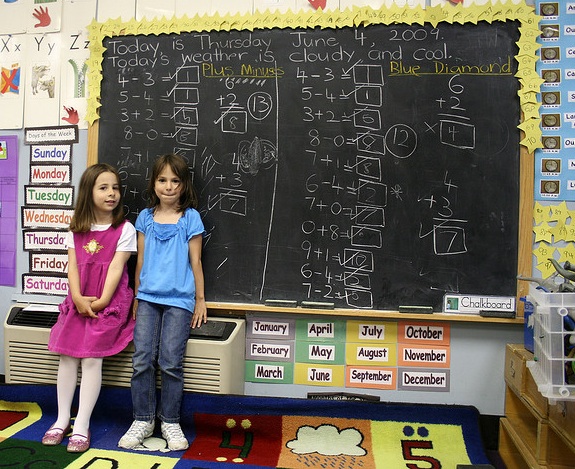Women Who Score Well on Both Math And Verbal Tests Still Don’t Choose Science Careers
This may be because women have some many career options these days, researchers write, or maybe it’s just sexism

Photo: woodleywonderworks
Women remain underrepresented in the sciences, but why? One team publishing in Psychological Science claims that it’s simply because women have more career choices these days.
To arrive at this conclusion, the researchers examined national survey data from 1,490 students, both male and female, bound for college. The partipants were interviewed in the 12th grade, then again when they were 33 years old. They answered questions about their SAT scores, their motivations and beliefs and, later, their occupations.
Those who had the highest verbal abilities—a group already dominated by women—they found, were most likely to avoid a career in science, technology or engineering. Given that women are more likely to have high verbal abilities, the researchers then assumed that women with high math abilities are more likely than men with high math abilities to also excel at verbal skills. With two skills sets, women, the researchers said, had a broader range of career possibilities open to them.
Not surprisingly, students who originally reported feeling confident about their math abilities and only moderate about their verbal abilities were more likely to go on to a career in science or a related field. The researchers say this means that mathematics may play a more integral role in those persons’ identity, leading them to a career in science.
The researchers think that, in light of their findings, educators should stop worrying about boosting girls’ abilities in math and focus instead on emphasizing how cool careers in science are to the girls who excel at both math and liberal arts.
The researchers do not explore why women may be choosing a career as English teachers over a principle investigator in a physics lab. Whether or not other factors come into play—such as sexism, difference in mentoring styles, or false expectations that a career in science will automatically equate with giving up on having a family—are not mentioned in their statement. But MSN reports on another possible explanation—inequality in science fields:
Another study from this month said that while female scientists have made gains in the field, they face “persistent career challenges.”
The study, published in the journal Nature, said that U.S. universities and colleges tend to employ many more male than female scientists, and that men in the field earn significantly more than women.
“One of the most persistent problems,” the study says, “is that a disproportionate fraction of qualified women drop out of science careers in the very early stages.”
The study suggests the reason for this could be a lack of role models, resulting in females in the field feeling like they don’t belong.
The idea that women are simply choosing other careers isn’t entirely new. The Boston Globe‘s Ideas section wrote about two studies that drew similar conclusions in 2008:
When it comes to certain math- and science-related jobs, substantial numbers of women – highly qualified for the work – stay out of those careers because they would simply rather do something else….The researchers are not suggesting that sexism and cultural pressures on women don’t play a role, and they don’t yet know why women choose the way they do. One forthcoming paper in the Harvard Business Review, for instance, found that women often leave technical jobs because of rampant sexism in the workplace.
This research all points to one clear confusion: more women could be entering science fields than do right now. Why they don’t is a more complicated question.
More from Smithsonian.com:
Women in Science
Women Are Still Discriminated Against in Science
/https://tf-cmsv2-smithsonianmag-media.s3.amazonaws.com/accounts/headshot/Rachel-Nuwer-240.jpg)
/https://tf-cmsv2-smithsonianmag-media.s3.amazonaws.com/accounts/headshot/Rachel-Nuwer-240.jpg)